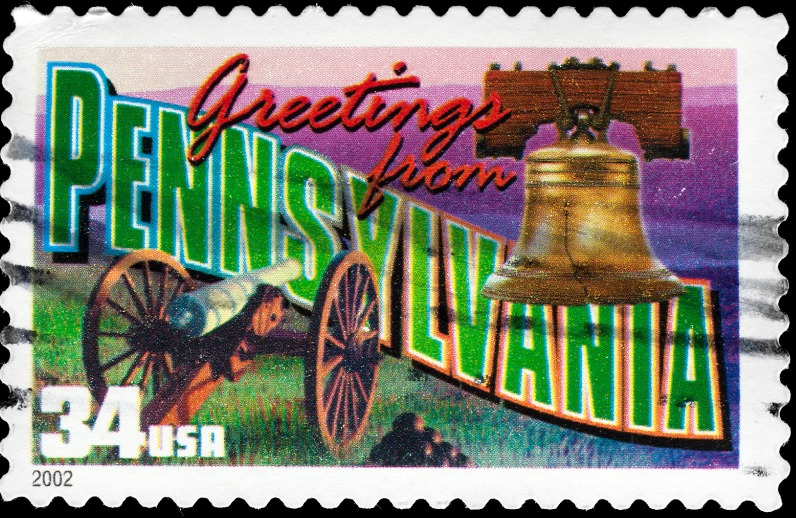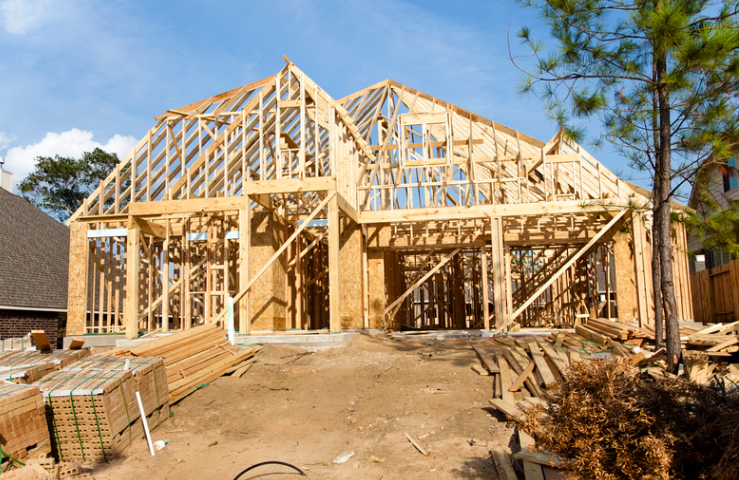Pennsylvania Single Close Construction: The Guide to a Painless New Home Construction Process

Building a new home in Pennsylvania can be a thrilling journey, but it can also prove to be a complicated financial transaction. Most construction loans involve multiple loans and closings throughout the construction process, resulting in added costs and headaches. Thankfully, there are Single Close Construction Loans that offer competitive rates and fees, helping to minimize those headaches. In this blog post, we will discuss single close construction loans, the advantages of the single close loan, the process, and how to get qualified.
What is a Single Close Construction Loan?
A Pennsylvania single close construction loan, also referred to as a one-time close construction loan, is a mortgage financing option that combines construction financing and a permanent mortgage into one set of documents, one approval, and one closing. Construction loan terms may vary depending on the project and the loan will be converted into permanent financing once the construction is completed. As the home under construction nears completion, the loan automatically converts to a permanent mortgage.

Single Close Construction Loan Pennsylvania Advantages
Convenience and Simplicity
One close construction loan in Pennsylvania is simpler than multiple close loans. You obtain a single permanent loan approval with one closing, reducing the amount of paperwork and closing transactions.
Single Loan Combination of Construction and Permanent Financing in Pennsylvania
When construction financing and permanent financing are combined into a single loan, closing costs are saved. With a traditional construction loan, two sets of closing costs are required, but with a single close loan, you pay once and that’s all.
Fixed Rates
Single close construction loans typically offer fixed interest rates in Pennsylvania. You are able to lock in a single rate at the start, giving you financial predictability and peace of mind for your pocketbook. Also, depending on the borrower’s circumstances, interest-only payments can be arranged. During the construction phase, your monthly payments are lower as you'll likely only be paying interest.
A one-close construction loan simplifies the transaction in Pennsylvania, minimizing delays and providing a much smoother first-time experience. Most lenders have special departments responsible for underwriting and closing the loan to help expedite the process.

What is the Single Close Construction Loan Process?
Qualify and Apply in Pennsylvania
To get a single close construction loan, you must first apply with a lender offering a home construction loan. The lender will examine your financial records, credit history, and the proposed plans for your new home under construction.
If qualified, the loan funds are released in progress or “draws” as construction work advances. Draw amounts are paid to the builder for various construction stages, meaning you get the money when you need it but only after work is done.
Construction Phase in Pennsylvania
During this period, your lender will often inspect the construction site to ensure that the project is proceeding according to schedule and that the funds are being expended properly. This helps maintain the smooth construction flow.
Permanent Mortgage in Pennsylvania
Upon completion of the home under construction, the loan automatically converts to a mortgage. You will start making the normal monthly mortgage payments like you would with a traditional home loan.

How to Get Qualified and What’s Required in Pennsylvania?
Credit in Pennsylvania
Most lenders require a credit score of good to excellent to get qualified for a single close construction loan. A strong credit score shows your repaying history and ability, and also helps you qualify for favorable terms. Ask your licensed lender what minimum credit score is needed for you to qualify. If you have a co-borrower, their credit will also be used to qualify for the total loan amount in Pennsylvania.
Selecting reputable construction loan lenders is crucial to meet your needs as a developer. Ensure you choose lenders who are experienced and have a good track record in providing construction loans.
Income and Employment
A stable employment history and income are important to get approved. Your lender wants to know that you can afford to make the loan payments during and after the construction period. Your mailing address, contact telephone number, and email address will also be requested.
Construction Plans in Pennsylvania
Thorough construction plans along with a contract with a licensed builder are needed. The construction plans should consist of blueprints, specifications, and a time schedule for construction.
Down Payment
Typically, a down payment is also required, but varying amounts may be allowed. Some programs may require lower down payments, especially for first-time homebuyers.

Selecting Your Construction Loan Lenders in Pennsylvania
Single close construction loans are not available with all lenders, so be sure to select a lender with experience in this type of loan. You should look for lenders with a strong background in construction loans, offering competitive fixed interest rates and terms with excellent customer service and support throughout the process. Working with a private lender can offer a direct lending process without any middlemen. One mortgage lender you may consider is the Federal Housing Administration. If you’re a veteran, you may want to consider a VA loan. An adjustable-rate mortgage is also worth considering in the construction loan process; this depends on VA guidelines and veterans’ affairs, but qualified veterans may get a competitive mortgage term. Extensive research is always recommended before agreeing to any program.

How to Prepare Your Application in Pennsylvania?
Gather Required Financial Documents in Pennsylvania
You should obtain all your financial records before applying, including tax forms, recent paychecks, bank statements, and any other proof of financial stability. Your debt-to-income ratio will be calculated. Personal construction loans provide short-term financing and avoid the hassle and cost of a second closing for permanent financing.
Describe Your Planned Work in Pennsylvania
Prepare thorough detailed construction plans with the help of your builder. Make sure the plans are comprehensive and satisfy the lender’s requirements.
Costs Understand
Be sure to understand all the costs involved in the home construction process. Not only the actual building of the home but also any fees and loan closing costs. Your debt-to-income ratio will also be considered. The lender will examine down payments, land equity, loan amounts, and higher loan amounts.

Your Builder in Pennsylvania
Select a Qualified Licensed Builder in Pennsylvania
Choose a qualified licensed builder in Pennsylvania who has experience in single close construction loans. He or she should be able to produce comprehensive detailed plans and time schedules that satisfy the lender’s requirements. A qualified builder can also help with making improvements or adding an addition to an existing structure.
Draw Up a Clear Contract
Make sure that your contract with the builder in Pennsylvania spells out everything involved in the home construction including time schedules, costs, and work assignments. Your contract will form an essential part of your loan application.

The Construction Process Phase
Inspections in Pennsylvania
During this period, your lender will often inspect the construction site to ensure that the project is proceeding according to schedule. If you have a Pennsylvania construction loan, these inspections are crucial to ensure that the loan disbursements align with the construction milestones. Be prepared to accommodate these inspections and cooperate with your builder to resolve any problems.
Communicate
Keep open communication with your lender and builder in Pennsylvania throughout the construction process to avoid misunderstandings and delays. Keep everything proceeding on schedule.
Mortgage Services
Inspection in Pennsylvania
Upon completion of the home under construction, the lender will make a final inspection to ensure that the home is finished according to the planned work. This inspection is required for the loan to convert to a mortgage in Pennsylvania.
Upon completion of the final inspection and loan conversion, you will start making the normal monthly mortgage payments. Be sure you understand your mortgage loan terms and are prepared to fulfill your obligations, especially regarding various home loans available, such as FHA home loans, VA home loans, USDA home loans, and conventional home loans.
Possible Problems and How to Overcome Them in Pennsylvania
Delays
Weather and supply delays or other events beyond your control can slow down the construction process. Plan for possible delays and keep an emergency fund to cover unexpected expenses. Understanding the real estate market can also help in planning for potential delays and cost overruns.
Cost Overruns
Home construction projects often experience cost overruns. Prepare a realistic budget with your builder and allow for a cushion to cover unexpected expenses.
A single close construction loan in Pennsylvania can prove to be a great choice when building your new home. It simplifies the home financing process, saving you money and providing peace of mind by combining the construction loan and mortgage into one convenient package. If you understand the advantages, requirements, and process, you can make the right choices and take the first step toward building a home that meets your exact needs and lifestyle.
Thinking of building a home? Learn more about the advantages of a single close construction loan in Pennsylvania. Speak with an experienced lender/mortgage loan officer. Each home construction scenario is different, so find out more about your choices and take the first step toward making your dream home a reality. Whether you’re looking for single closing, modular homes, short-term loans, shipping container homes, long-term financing, short-term financing, log cabin homes, single-family dwellings, or more, there’s a solution for you.
If you need a construction-to-permanent loan in Pennsylvania, ask Bob Fabian, a licensed lender with years of experience providing quality service. Bob offers consumers the best guidance connecting them with great interest rates. He supports every step of the way in the construction-to-permanent process. Whether residential loan types, multi-family units, single closing, accessory dwelling units, two-time close construction loans, construction-to-permanent loans, and traditional mortgages, Bob Fabian’s got you covered.
The diverse real estate market in Pennsylvania, influenced by the presence of many urban areas and a strong suburban market, contrasts with the varying trends between rural and urban areas in the state.











